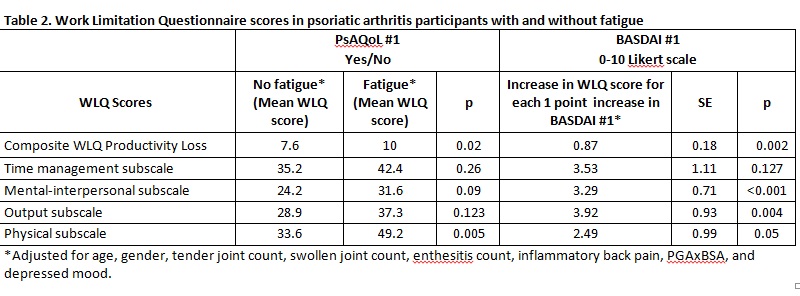Session Information
Session Type: Abstract Submissions (ACR)


Disclosure:
J. Walsh,
None;
M. McFadden,
None;
G. G. Krueger,
None;
A. D. Sawitzke,
None;
D. O. Clegg,
None.
« Back to 2013 ACR/ARHP Annual Meeting
ACR Meeting Abstracts - https://acrabstracts.org/abstract/fatigue-and-work-disability-in-psoriatic-arthritis/
